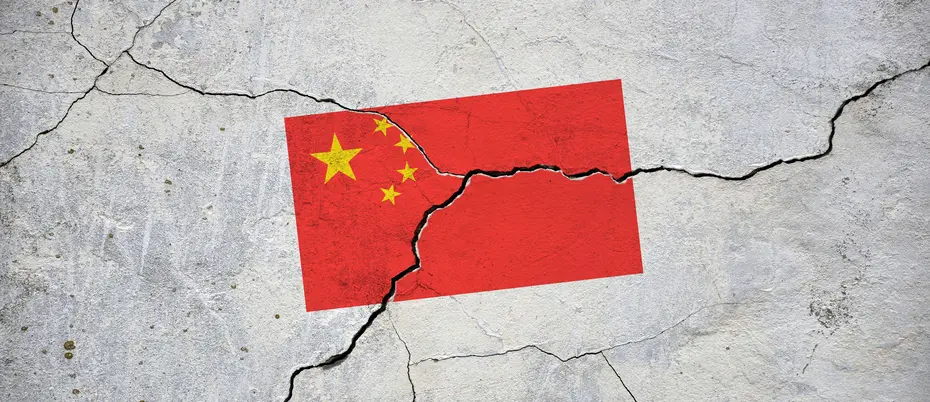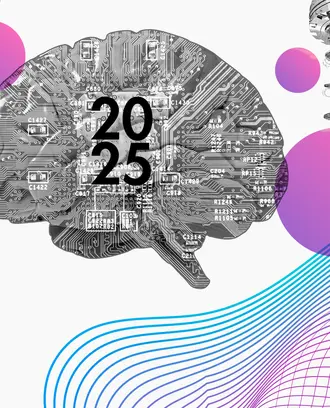Economy
New book details China’s economic rise — and now, its fall
China’s economy is stagnating. Reduced collaboration and increased political autocracy will continue to take a toll, China expert Yasheng Huang predicts.
China’s economy is stagnating, plagued by a real-estate crisis, high unemployment, dwindling confidence among investors, and other setbacks.
Some may be surprised at the severity of these challenges, but MIT Sloan professor isn’t one of them. In writing his new book, “The Rise and Fall of the EAST: How Exams, Autocracy, Stability, and Technology Brought China Success, and Why They Might Lead to Its Decline,” Huang anticipated that China’s economy would falter.
“We are basically seeing a repeat of Chinese history, when the Chinese state previously restricted economic and political freedom,” Huang said. “And with that comes economic stagnation.”
In a recent interview, Huang discussed the circumstances that have led to China’s current predicament. He also provided insight into what might happen in the country if collaboration with the West breaks down.
The economic news from China in recent weeks has been increasingly dire, which makes your book’s subtitle feel particularly apt. What factors have led to China’s current economic problems?
The way that the Chinese government is restricting the private sector and creating economic insularity — these things are quite detrimental to growth.
The pandemic definitely added insult to injury, but it was not the only factor. In China in the past few years, the market economy and private-sector development have been undermined, globalization has retreated, and political autocracy has increased. These are not conducive factors for growth.
I don’t foresee even a modest recovery. The data is really terrible.
Did you see a struggle of this magnitude coming?
It is not a surprise to me that the Chinese economic recovery has been problematic.
I submitted my book to the publisher sometime in early 2022 and gave them the last revision in late November 2022. So I didn’t talk about the current economic issues, but in my book I laid out my prediction and perspective that the Chinese economy is going to really, really struggle going forward.
My prediction was based on historical facts and data, not on economic theory. In the past, when the Chinese economy succeeded, it was when the private sector was developing and the government was more flexible and tolerant of differences of opinions. And in the past, when the Chinese economy was doing badly, it was precisely because of the opposite dynamics.
Your wrote opinion pieces in the The Boston Globe and The New York Times saying that the COVID-19 lockdown protests were powerful but could not challenge Xi Jinping’s regime. So how have those events affected the situation in China?
The protests were a game changer, not in the sense that they were going to topple the government. They were a game changer in the sense that — and this goes to the heart of my book — they brought disparate groups of people together.
Related Articles
Historically, Chinese institutions have been very good at compartmentalizing people. It was, “OK, you are a farmer. You protested because you lost your land. Well, I’m a software engineer in Shanghai. Why should that bother me?”
That calculation has historically deterred people from coming out to protest, even though the level of grievances can be substantial. That sense of collective recognition was not there before COVID. The protests against zero-COVID [policies] broke that compartmentalization.
The issue here is that there could be similar events and shocks that happen in China in the future. Economic slowdown across the board, income stagnation — these can serve as catalysts.
They may not have the catalytic effect that the apartment fire did, but we may witness an increase of protests against income, wages, economic issues, and things like that.
For the first time in decades, the global economic race has shifted: The U.S. has faster growth and a stronger dollar, while China is struggling with a weaker yuan. Is it fair to compare the two?
Many people make the mistake of comparing China with the United States. Strong government programs in China are implemented within a context of autocracy. We should criticize each country on its own terms rather than use one country as an example for the other.
I think that the role of a government is critical in economic management and in economic development. What I argue in the book is that it is very important to understand that, for China, the country’s success and 40 years of rapid economic growth have been mainly a result of market economy, globalization, and private-sector development. If global business leaders see these elements retreating in China, I don’t think it is wise for them to hang on to the belief that the Chinese government is meritocratic, because that’s not really how the Chinese economy grew.
How will less collaboration between China and the West impact China’s economic prospects?
China has basically clamped down on collaboration with the West, and the West has also clamped down on collaboration with China because of the geopolitical tensions between China and the United States. This is not just in academia but also in technology and the corporate sector.
Chinese companies used to be able to cooperate with Western companies. Huawei, the Chinese 5G company, was able to develop its [smartphone] camera system with German companies and was able to develop its chip design in collaboration with American chip-design companies. And it was able to collaborate with Taiwanese chipmaker TSMC to produce this.
Now all these collaborations are either becoming extremely difficult or have stopped altogether. President Xi Jinping is turning back the clock, and to some extent he has weakened the success formula that the Chinese leaders before him invented and practiced.
So the remaining question is, can China continue at the same pace of technological progress that it was able to achieve before?
Obviously, we’re talking about the future, and the future is always uncertain, but I’m willing to bet that without the collaboration with the West, without academic collaboration, without business collaboration, without technological collaborations, the pace of Chinese technological progress is going to slow down dramatically.
Read next: Beyond China’s COVID unrest, 3 important economic takeaways




